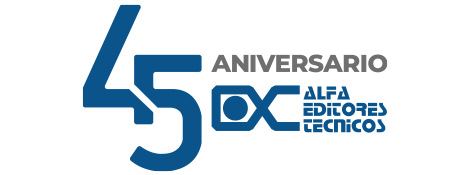A new regulation to clarify the status of novel foods is being introduced by the European Commission, which may help speed up time to market.
The European Commission is bringing in a procedure that will enable manufacturers to obtain a relatively quick determination of whether a product falls into the classification of ‘novel food’ under the scope of Regulation 2015/2283.
Food business operators will be able to submit a Consultation Request to a Member State, who are obligated to provide prompt verification of the validity of the request. The new measures, published in The Official Journal of the EU will come into force on 8th April 2018. The Member State must provide an answer on the status of a food within four (or, in exceptional circumstances, eight) months of validating the consultation request, together with a justification of the decision.
The key aim of the new regulation is to provide clarity over whether the food is novel or not. This will provide manufacturers with the certainty that they can either go straight to market or whether they need to submit a full novel food application. Previously, food operators could undertake a self-assessment, but this could be challenged at any time by any Member State.
“The goal of the new regulation is to clarify status, so you can go immediately to market (not novel) or be certain that an application is needed (novel),” explained EU nutrition and law expert and managing director of Hylobates Consulting, Luca Bucchini. “With the new process, it will be much easier and transparent to get a formal opinion, which can be used across the EU.”
Submitting a consultation request might, in some cases, remove the need to undertake a time-consuming and expensive full application, Bucchini suggested.
“Obviously before submitting a novel food application, it would be good practice to complete a consultation request – while some data for a dossier should be at hand for all food products, a full application may turn out not to be necessary.”
Submission venue
The verdict of the Member State on the status of an ingredient is binding. However, food business operators can choose the country in which they apply for a ruling.
“A food business can ask the view of a Member State on whether a substance is novel, which becomes binding. Interestingly, the food business can choose any Member State where it intends to market the product,” said Bucchini.
“This will lead businesses to consult Member States with more experience and efficiency in assessing such requests, which is a positive. The Member State has four months, or a maximum of eight months to reply. However, the Regulation does not say what happens if the Member State fails to reply, which is a further reason for selecting carefully the authorities whom to ask,“ he added.
Technical dossier
Food manufacturers submitting a consultation request must include a technical dossier and an explanation of the purpose and relevance of the application.
Technical data required within the dossier include the name, description and proposed category of the novel food (as classified by Article 3.2(a) of Regulation 2015/2283); intended use and concentration in food product; and production process. Details of any history of human consumption of the food prior to 15th May 1997 should also be included.
Inconsistency among Member States
Although the technical dossier submission may promote consistency, regulatory authorities in different Member States have varying interpretations of what constitutes a novel food -making legislation more of an art than a science, suggests Bucchini.
“I sometimes refer to regulation of novel foods as dark arts because of how easily regulators can decide on novelty – some would call any minimal variation to a production process totally novel, while some others call for a more proportionate approach.
“The Regulation has been criticised for leaving in the hands of a single Member State a decision that then binds all other Member States. In practice, with few exceptions, Member States will coalesce around a view when they consult each other, and it will be hard but not impossible to push through a substance without evidence.”
Nevertheless, Bucchini felt that the new regulation should have some significant positive implications for businesses.
“The procedure should add some transparency to the dark arts of novel food regulation. It could be a great opportunity for businesses to avoid the vagaries of certain Member States which see a novel food everywhere (ignoring the aim of the regulation, which is to protect public health, not to create administrative burdens or barriers), and, for ingredient manufacturers, including of botanical extracts, to provide legal certainty to their customers.
“However, the effectiveness of the Regulation will depend on the quality of the dossiers, and the commitment of authorities,” he concluded.
Source: Nutra Ingredients








